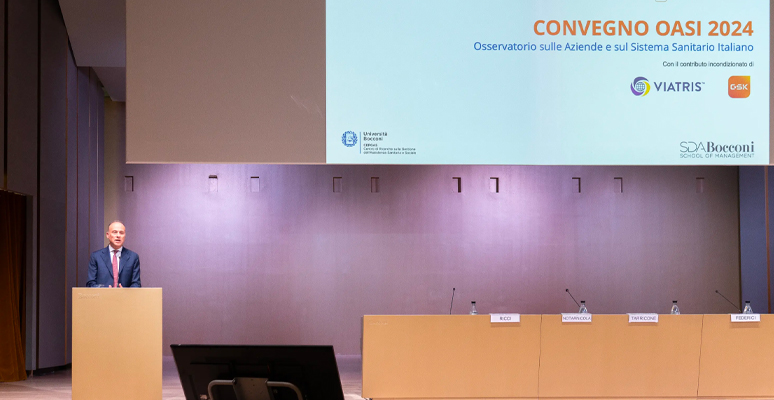
- Start date
- Duration
- Format
- Language
- 11 Jun 2025
- 9 days
- Class
- Italian
IN THE TRAGIC COVID MONTHS, THE SYSTEM HAS DEMONSTRATED A CAPACITY FOR CHANGE, ADAPTATION AND DIGITIZATION THAT MUST NOT BE LOST. THE AUTHORS SUGGEST TO USE THE FUNDS OF NEXT GENERATION EU FOR CAPITAL INVESTMENTS, WHILE SETTING A MINIMUM THRESHOLD, FOR EXAMPLE 7.5% OF GDP, FOR THE FINANCING OF THE NHS
After 10 years of financial and staff cuts, the Italian National Health Service (Servizio Sanitario Nazionale, SSN) has seen both current spending and the number of employees increase significantly in 2020. Current spending grew in one year by about 5 billion euros (+4.7%), and from March to October 36,000 hires were recorded, or two thirds of the staff lost in the last ten years.
The shock, which followed the identification of COVID Patient One in Codogno on 21 February, 2020, could paradoxically change the system for the better, but only if it is properly governed, according to the 2020 OASI Report on the Italian health system by CERGAS SDA Bocconi, coordinated by Francesco Longo and Alberto Ricci and launched today at the University.
The increase in expenditure has been implemented by accumulating debt, thus generating a framework of uncertainty about the amount and stability of the increase in public spending for the SSN in the medium term. To prevent current spending from getting out of hand, “European resources will have to be allocated to capital investments,” says Francesco Longo. "At the same time, in the light of the COVID experience, it would be important to define a minimum threshold, for example 7.5% of GDP, under which the financing of the NHS should never fall.”
“Epidemics, in history, have always subsided, and even COVID,” says Alberto Ricci, “will leave the field to the usual demographic and epidemiological emergencies: population aging, chronicity, disability, fragility. These trends have understandably faded in the background, but the epidemic has accentuated them.”
The most urgent objective, according to the editors of the OASI Report, is the restructuring of the SSN in five years, reorienting it to chronicity. The operational capacity of the system must be proportionate to ordinary needs, but with high flexibility. In other words, it is necessary to avoid investing in spare production capacity that can only be used to manage extraordinary epidemic waves.
To ensure that the efforts made by healthcare personnel and managers in recent months are not lost as soon as the emergency stops, the OASI Report also suggests other strategic priorities. Among them:
“With the pandemic, the SSN has learned to transform a department from one specialty to the other in little time, to reuse operating theatres as intensive therapies, to create ‘dirty’ and ‘clean’ paths, to activate the dematerialized prescriptions, to digitalize some specialist visits. This ability to abruptly redirect services, unfortunately experienced in a tragic context and at the cost of enormous efforts, is a great resource that the system has shown to have and must not lose,” concludes Longo.


Approfondire il contesto in cui operano gli attori del sistema salute, le principali tecniche per veicolare il valore di un farmaco e per una negoziazione sostenibile.

Doing a comprehensive strategic exercise as the executive leadership team of a hospital to test and strengthen managerial and organizational skills.

